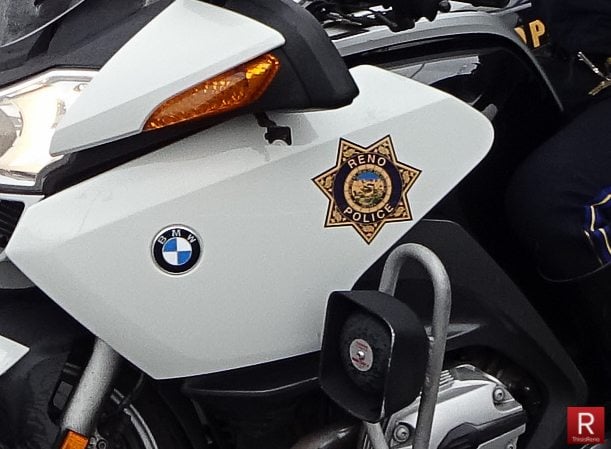By Michael Lyle
This story was originally published by Nevada Current.
While legislation decriminalizing traffic tickets and preventing driver’s license suspensions for minor traffic offenses technically go into effect July 1, major provisions of the bills won’t be effective until months, if not years, later.
Assembly Bill 116 makes minor traffic violations, such as driving with a broken taillight, a civil infraction, while Senate Bill 219 ends the practice of suspending people’s driver’s licenses when they can’t afford to pay fines and fees for minor traffic tickets.
The component of AB 116 actually converting minor traffic offenses from a criminal into a civil matter goes into effect Jan. 1 2023.
“(Jurisdictions) have until 2023 to implement their systems, but they do have the discretion to begin treating these minor infractions as civil infractions prior to that,” said Leisa Moseley, the Nevada state director for the Fines and Fees Justice Center.
While SB 219 also goes into effect Thursday, the key provisions that prevent driver’s license suspensions take effect Oct. 1.
Thursday’s effective date for both bills makes needed appropriations in order to begin the implementation process.
Even though the bill takes effect Thursday, Moseley said it’s important for people to know they can still be arrested if they have an outstanding warrant and “they should still try to take care of it.”
“Just yesterday, the Idaho Supreme Court issued an opinion that in Idaho it is unconstitutional to arrest someone on an outstanding traffic warrant if there hasn’t been an adequate pay assessment done prior to issuing that warrant,” she said.
In the case, Beck v. Elmore, Roxanna Beck spent seven days in jail because she could not afford to pay the fines after she was convicted of a minor misdemeanor offense.
Moseley said she is sending the decision to the district attorney’s association as well as other elected officials to see how the ruling could affect Nevada and if the case could prompt jurisdictions to stop issuing warrants related to minor traffic violations.
John Jones, a lobbyist for the Nevada District Attorneys Association, couldn’t be reached for comment.
At the beginning of the pandemic, Las Vegas Justice Court suspended enforcement of traffic warrants, leading Moseley to believe a similar effort could be taken ahead of 2023.
Despite the confusing implementation timeline, many criminal justice reformers are happy both bills passed.
Efforts to decriminalize traffic tickets in Nevada, something 37 states had already implemented, took five legislative sessions.
Speaking at the Battle Born Progress legislative wrap-up event Thursday Leslie Turner, who runs the Mass Liberation Project with the Progressive Leadership Alliance of Nevada, said passing both bills was a huge win.
For years, Mass Liberation had been advocating for lawmakers to decriminalize traffic tickets, which Turner said led to “wealth-based detention and people ending up in jail simply because they cannot pay.”
“It’s cruel and unusual punishment,” she said. “Eighty percent of the traffic tickets that are in warrant right now are for non-moving violations, which means these are things people literally could not pay. It’s for unregistered vehicles. It’s not having insurance. It represents a vicious cycle a lot of folks get caught in.”
Turner also called the passage of the two bills a “personal win.”
“I’m a person who has been jailed several times for unpaid traffic tickets and removed from my family and separated from my infant son,” she said. “It’s important people understand this is something that impacts real people. I was removed from my 4-month-old son while I was breastfeeding for unpaid traffic tickets. That’s something we can all agree is unnecessary.”
In addition to AB 116 and SB 219, hundreds of bills go into effect Thursday. The list includes:
Assembly Bill 139 removes a President Clinton-era provision that prevented people convicted of drug offenses from getting some public assistance, including the Temporary Assistance for Needy Families (TANF) program or the Supplemental Nutrition Assistance Program (SNAP), commonly referred to as food stamps.
Assembly Bill 171 makes it illegal to cut or damage any of the Rocky Mountain junipers that grow in an area known locally as the swamp cedars without a permit.
Assembly Bill 186 would ban police quotas by prohibiting law enforcement from requiring officers to issue a certain number of traffic citations or to make a certain number of arrests.
Assembly Bill 308, which was embraced by realtor and landlord groups, prevents a landlord from charging late fees as long as rent is paid within three days of its due date. It also increases the timeframe landlords must give tenants when increasing rent from 45 days to 60.
Senate Bill 22 limits how much the Nevada Department of Corrections can deduct from inmates’ accounts. Money sent by friends and family will now be capped at a 25% deduction while deductions of money earned through jobs will be capped at 50%.
Senate Bill 386, known as right-to-return legislation, gives certain laid-off workers the right to be offered back their former or similar jobs, as those positions become available.


